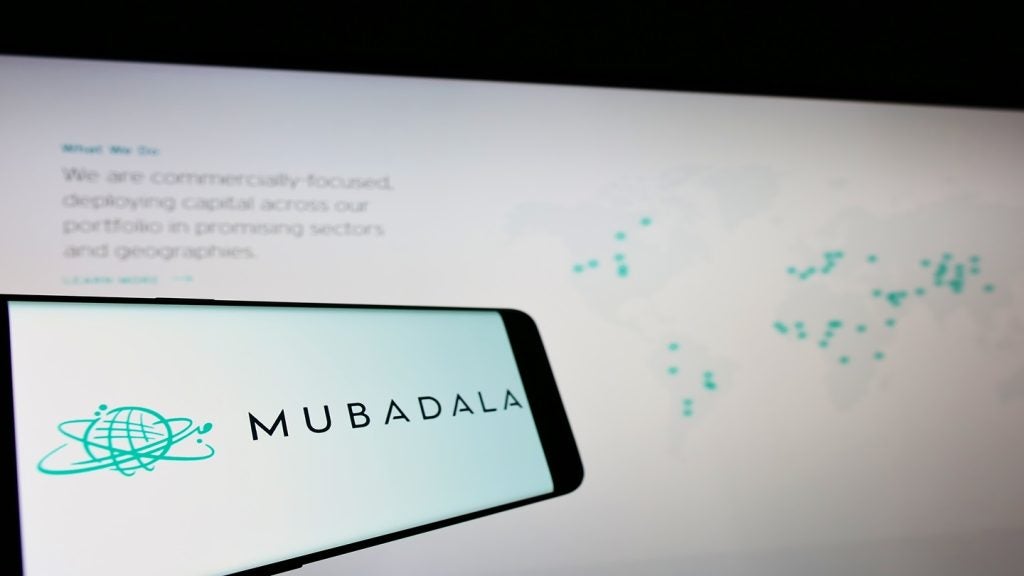The big international wealth managers are increasingly waking up to the potential of African clients, particularly those in the sub-Sahara nations rich in oil, commodities, minerals and metals.
After Asia, a wealth honeypot for banks in recent years, Africa is increasingly regarded as being the last remaining continent for cultivating a high net worth clientele — if banks can find enough experienced advisers to service such regional business.
"Africa has been rightly described as the new frontier of private banking and wealth management," says Dudley Edmunds, principal of recruiters Culliford Edmunds in London, a firm with an expanding number of mandates to seek private bankers to work in the region.
Tom Price-Daniel, managing director at Price Daniel Partners, an emerging markets search consultant, agrees, saying that attitudes in the wealth industry towards Africa’s new rich have been rapidly transformed over the past two years, with banks seeking new talent to cultivate the business.
Certainly, the outlook for Africa’s high net worth wealth looks positive, according to the RBC Capgemini World Wealth Report for 2012. It found Africa is now the fastest-growing region for the number of HNW individuals, after Latin America. The continent now has about 100,000 HNW individuals, growing at 4% a year and now owning $1.1 trillion, it estimates.
This growth does come with associated risk. Banks will be mindful that Africa will need very demanding compliance and money laundering controls. Corruption watchdog Global Financial Integrity estimates that illicit financial outflows cost Sub-Saharan Africa $385 billion between 2001 and 2010. More than half of all financial institutions in Europe, the Middle East, India and Africa (EMEIA) are experiencing widespread corruption or bribery in their business, according to a recent fraud survey published by Ernst & Young.
How well do you really know your competitors?
Access the most comprehensive Company Profiles on the market, powered by GlobalData. Save hours of research. Gain competitive edge.

Thank you!
Your download email will arrive shortly
Not ready to buy yet? Download a free sample
We are confident about the unique quality of our Company Profiles. However, we want you to make the most beneficial decision for your business, so we offer a free sample that you can download by submitting the below form
By GlobalDataFor prudent private banks, the target countries are headed by Nigeria, followed by nations like Kenya, Zambia, Zimbabwe, Botswana and Mauritius as well as South Africa, private bankers say. Mozambique, with plentiful coal and oil, Congo (diamonds and cobalt), Namibia (uranium) and Ghana (gold) are also on banks’ radar.
There’s increasing interest in Africa from private banks outside the usual group of Barclays, HSBC and Standard Chartered as players like Deutsche, UBS, Credit Suisse and Societe Generale all build their African presence, bankers say.
There’s some debate whether HSBC is still fully committed to its African client business. Roger Johnson, head of the Africa region for HSBC Private Banking, has just resigned, amid a general "de-risking" by the bank which has already seen it divest a number of private banking businesses. The African wealth business is estimated to make about £50 million in annual revenue so could attract plenty of bids if HSBC decided to sell.
Corporate bank co-operation
Banks eyeing Africa seem to have a variety of different client on-boarding strategies.
"Some are frankly in for the quick client wins, hoping to pick up useful business without spending much money on a real network," the Africa head of one private bank, requesting anonymity says. "That’s short-sighted. The giant economies are South Africa and Nigeria. After that, it starts to get very thin – Tanzania really only has six (wealthy) families worth chasing."
Instead, this banker advocates the harnessing of cross border trade and corporate finance for business-orientated clients, making private banking part of this spectrum of services.
"The conventional private banker selling portfolio management often doesn’t work in emerging Africa," this banker contends. "You have to dovetail it with other services and with work with what your corporate colleagues are doing."
At France’s Societe Generale Private Banking, that’s certainly the approach, says Jean-Paul Rame, Global Market Manager for Africa, who says his bank is very much focused on Africa-based entrepreneurs.
"We can accompany our clients in the development of their businesses in their own countries, for example in assisting them for their local projects. But also internationally, for example when they are dealing with the creation of subsidiaries in other African countries (or indeed elsewhere), or with large international suppliers or purchasers."
Here, private banking has an important role to play, "by advising our customers and helping them in particular with the opening of international accounts," Rame adds.
From its home base of South Africa, Standard Bank is a powerful player, offering private banking services across 15 countries.
Craig Bouwer, its Head of Private Banking Africa, says that with this network, cross-border migration is important.
"Trading in 15 countries means that we are able to migrate the private banking relationship with "mobile executives" when they relocate to new positions in new countries," he explains.
"Regulatory restrictions obviously differ from market to market, but we are able to provide a seamless consistency in products, services and fundamentally the relationship with Standard Bank."
Another powerful competitor is Barclays and its South African arm, Absa. The Wealth and Investment management divisions of the two are aligned to the broader strategy of becoming the ‘Go-To’ bank in Africa with a purpose of making life easier for clients, Barclays says. Offering onshore and offshore services, the goal is to seek to be the trusted adviser to clients, helping them acquire wealth, grow their wealth, preserve it and pass it onto generations.
Srinivas Siripurapu, Barclays Head of Offshore Africa, says the bank is very confident in the opportunity that Africa presents.
"Consistent GDP growth, fuelled by domestic and international investment will see significant wealth creation over the coming years. We plan to support this growth with the build out of the offshore business through further development of our hubs in London, Geneva, Zurich and Dubai".
Another bank with a long Africa pedigree is Standard Chartered. Shayne Nelson, CEO, Standard Chartered Private Bank, confirms that "we are actively growing our private banking business in Africa, working closely with our on the ground network of branches in the consumer bank and our wholesale banking business."
Standard Chartered acquired Barclays’ Africa custody business in 2010.
While the bank has "strong capabilities" in Africa for retail banking and corporate banking needs, its private banking business for Africa is serviced offshore, with booking centers in London, Jersey, Geneva, and Singapore.
Within this approach, StanChart offers bespoke services for HNW African entrepreneurs and professionals and it provides customised solutions for wealthy Africans.
A new front in the war for talent
Whatever the strategy, the big obstacle for most banks in tapping African wealth is the relative shortage of private bankers familiar with clientele from the continent. Headhunters are busy trying to find talent among "old African hands", at senior executive level through to relatively junior advisers, to fulfil these ambitions.
Dudley Edmunds agrees that a "major issue" in the development of a strong focus lack of really experienced private bankers that are available to serve the markets.
From the head-hunters’ perspective it can be difficult to find the right staff "and in such a relatively small pool they may not be able to ethically hunt for more than one client on the same level", he observes.
Tom Price-Daniel says that apart from the big banks, a number of "pure play" private banks have also been adding new teams – adding to the search for competent advisers.
One current job vacancy illustrates the importance which Africa is being treated by big institutions. A head of private banking for Africa is being sought by what’s described as a global private banking player. It’s prepared to pay up to £600,000 for senior banker with an average ticket size of $10 million, proven longevity throughout their career, and experience in managing a book size greater than $400 million.







